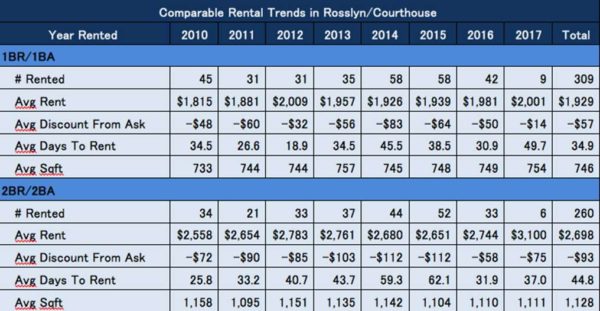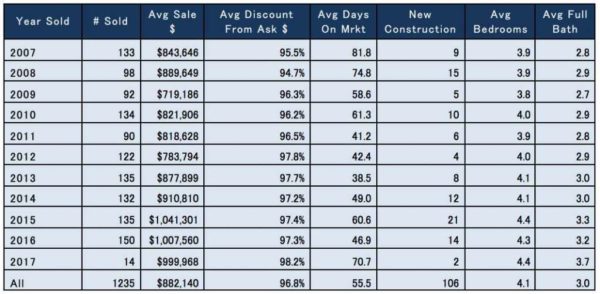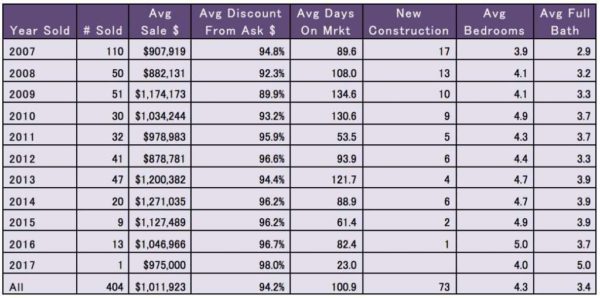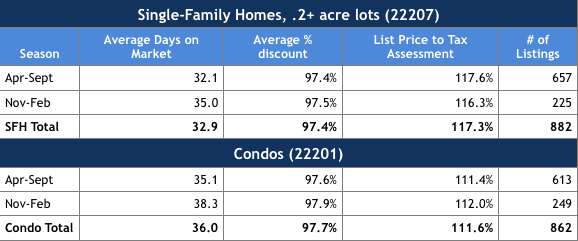This regularly-scheduled sponsored Q&A column is written by Eli Tucker, Arlington-based Realtor and Rosslyn resident. Please submit your questions to him via email for response in future columns. Enjoy!
Question: What is the likelihood that a lender will approve a loan for ~$500,000 for a first time buyer putting 10% down in a condo building that is approaching or over 50 percent units being rented out?
Answer: This question gives me another opportunity to bring in an industry expert: loan officer Jake Ryon of First Home Mortgage (NMLS #993471). Below, Jake debunks the common myth about rental ratios in condo buildings and introduces the factors that actually impact condo loans most frequently.
MYTH: Buyers Can’t Qualify For Condo Loans If More Than 50 percent of Units Are Rented
One of the most common myths that exists in the industry is that buyers cannot get a loan if more than 50 percent of units are being rented out in a condo building.
TRUTH: Most Homeowners Can Qualify For Condo Loans Regardless Of Rental Ratio
The percentage of units rented in a condo building (aka investor ratio or owner occupancy ratio) has no impact on loans for borrowers that are purchasing or refinancing their primary residence or second home. If the borrow is an investor seeking a conventional loan, the building must have at least 50 percent of the units occupied by owners (not rented). FHA’s requirement is the same but does not apply to second homes. While condo associations may elect to self-impose a rental cap, as it stands now with Fannie Mae and Freddie Mac, it currently doesn’t impact borrowers who are purchasing or refinancing their primary residence or second home.
What Does Impact Loans On Condo Buildings?
- Commercial/Non-Residential Square Footage: Currently, Fannie and Freddie cap the total commercial/non-residential square footage in a building at 25 percent of the total space, up from 20 percent a few years ago. Your lender may be able to obtain a project waiver directly from Fannie Mae if the commercial/non-residential square footage exceeds the 25 percent cap. I was recently able to obtain a waiver for a five unit project that has 38 percent commercial space (in D.C.) because we were able to show it was common in the area, didn’t impact marketability and were able to provide several comps with similar square footage of commercial/non-residential space.
- Single Entity Ownership: The maximum number of units owned by one entity can’t exceed 10 percent of the units in the project per Fannie and Freddie guidelines. If it is a 2-4 unit project (rare in Arlington, very common in DC), no entity can own more than one unit. Both Fannie and Freddie do allow one entity to own two units in a project with 5-20 units. A project waiver may be possible from Fannie Mae if a single entity owns greater than 10 percent.
- Delinquency: Fannie and Freddie do not allow more than 15 percent of the units in the Association to be > 60 days delinquent on the payment of their monthly assessments for the project to be warrantable (approved for loans). A project waiver may be possible with Fannie Mae if the delinquency rate is slightly higher than 15 percent.
- Budget: Fannie and Freddie require the Association’s current year adopted budget to include a minimum of 10 percent of the annual monthly assessments to go towards the reserve fund. If the budget does not document the required 10 percent, a current reserve study that supports the Association’s current level of contribution may be acceptable.
If you have any questions about condo warrantability or anything else loan-related, Jake Ryon can be reached at [email protected], 202-448-0873 or online. He is located at 1015 15th Street NW Suite #375 Washington DC 20005.
If you’d like a question answered in my weekly column, please send an email to [email protected]. To read any of my older posts, visit the blog section of my website at http://www.RealtyDCMetro.com.
Eli Tucker is a licensed Realtor in Virginia, Washington DC, and Maryland with Real Living At Home, 2420 Wilson Blvd #101 Arlington, VA 22201, (202) 518-8781.






